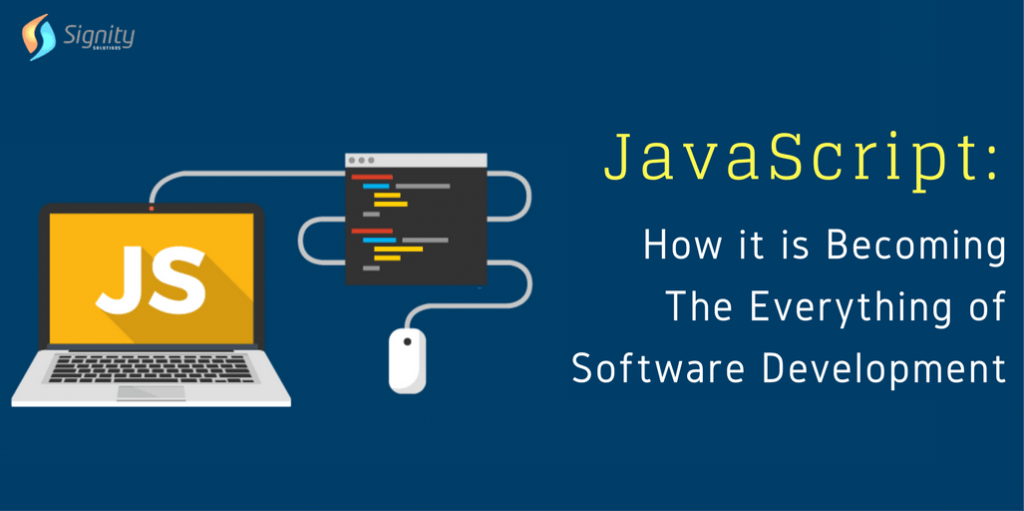Programming languages are key for careers in computer programming, software development, and software engineering. Knowing more languages opens up more job options. The Bureau of Labor Statistics (BLS) says computer and IT jobs will grow 15% by 2030, faster than most jobs.
This makes learning programming languages a great choice now. JavaScript, HTML/CSS, SQL, and Python were top choices in 2020, a Stack Overflow study found. This article will look at the most wanted programming languages for software engineering jobs.

Key Takeaways
- The software engineering field is expected to grow significantly in the coming years, making it a promising career choice.
- Knowing multiple programming languages can expand job opportunities for software engineers.
- Popular languages like Python, Java, JavaScript, and SQL are widely used in the software engineering industry.
- The choice of programming language depends on the specific software engineering tasks and project requirements.
- Beginner-friendly languages like Python can provide a solid foundation for software engineering careers.
Introduction to Programming Languages
Programming languages are key to software engineering careers. They let software engineers make new apps, websites, and systems for our digital world. As more skilled software engineers are needed, knowing different programming languages is vital.
Importance of Programming Languages in Software Engineering
Programming languages help software engineers turn their ideas into working software. Knowing many programming languages opens up more job options. Being good at several languages makes a software engineer more versatile and valuable in the job market.
Growth of Computer and IT Jobs
Programming languages are more important than ever with the growth of computer and IT jobs. The Bureau of Labor Statistics says these jobs will grow by 15% by 2030, faster than most other jobs. This shows the need for skilled software engineers and the value of learning programming languages.
| Programming Language | Industry Relevance |
|---|---|
| Python | Extensively used by major companies like IBM, NASA, and Pixar |
| JavaScript | One of the most commonly used programming languages for web development |
| SQL | Widely used for managing relational database management systems |
| Java | Employed for web and mobile applications, embedded systems, and big data technologies |
The software engineering field is always changing. Programming languages play a big role in successful careers in this field. Aspiring software engineers should spend time learning and mastering various programming languages. This will help them succeed in this fast-paced industry.
Coding vs. Programming in Software Engineering
In the world of software engineering, coding and programming are key. Coding means writing the code that tells computers what to do. Programming is about planning, designing, developing, and testing software and its structure.
Programmers focus on coding and might even learn to code themselves. But their main job is to make algorithms, data structures, and other key parts that make software work. Software engineers look after the whole life of a software, from the start to keeping it running well.
- Coding is the process of writing the actual lines of code that tell computers what to do.
- Programming involves the overall planning, design, development, and testing of software programs.
- Programmers focus on creating the underlying algorithms and data structures, while software engineers manage the full software development process.
The need for computer and IT experts is growing fast. The U.S. Bureau of Labor Statistics says there will be 377,500 job openings each year from 2022 to 2032. This means coding and programming skills in software engineering will become even more important. Knowing how coding and programming work together helps new software engineers plan their careers and get the skills they need.
“Coding is the language of the future, and every student should learn to speak that language.”
– Steve Jobs
How Are Programming Languages Used in Software Engineering?
In the world of software engineering, programming languages are key. They help engineers plan, design, and build apps that are strong, fast, and easy to use.
Engineers use their knowledge of programming languages to work on software. They team up with programmers and coders. Together, they use engineering skills to make new software solutions.
Choosing the right programming language is important. Each language has its own strengths and ways of working. A recent study found that JavaScript, HTML/CSS, SQL, and Python are the top languages used.
Some top programming languages in software engineering are:
- Python – great for data science, AI, and web development because it’s easy to read.
- Java – used for big projects and making Android apps because it’s strong.
- JavaScript – used for web development and making mobile apps because it’s versatile.
- C++ – used for system programming, game making, and embedded systems because it’s powerful.
- SQL – important for working with databases, which are key for data-driven apps.
Knowing and using programming languages well is crucial in software engineering. These languages are the foundation of designing, making, and keeping software running smoothly.
Python for Software Engineers
As a software engineer, you have many programming languages to pick from. But Python is a top choice for its versatility and popularity. It’s used in many areas, from making websites to analyzing data.
Python’s Versatility and Readability
Python programming is loved by software engineers for its ease and clarity. It has a simple syntax that’s easy to learn and understand. This lets engineers focus on solving problems without getting stuck in complex code.
Also, python in software development has a huge collection of libraries and tools. These help engineers work on a wide range of tasks efficiently.
Applications of Python in Software Engineering
Python programming is used a lot in software engineering. Big names like IBM, NASA, and Pixar use it for many things, such as making websites, automating tasks, analyzing data, and visualizing data. Python in software development is also great for building AI and machine learning models, thanks to libraries like TensorFlow and PyTorch.
If you’re new or experienced in software engineering, python programming is worth exploring. It’s versatile, easy to read, and has a strong community backing it up. This makes it a key tool for any software engineer.
“Python is a must-know for employees in any tech organization due to its vast use cases.”
Java for Software Engineers
Java is a top pick for programming in software engineering. It’s a high-level, object-oriented language known for being simple and able to run on many platforms. This makes it great for a variety of software projects.
Java is easy to learn and use, unlike languages like C and C++. It’s perfect for both new and seasoned programmers. Java uses classes to organize code, which makes it easy to reuse and maintain. This is key in object-oriented programming.
Java can run on different platforms without needing changes, which is a big plus. This flexibility has made it popular for web, mobile apps, embedded systems, and big data. Developers love it for its versatility.
Java is also known for its strong security, making it a safe choice for important projects. Its simplicity, platform flexibility, and security have made it a favorite in the software engineering world. It’s widely used and has a big community of libraries and frameworks.
“Java’s simplicity, platform independence, and robust security features have made it a go-to choice for software engineers across a wide range of industries.”
JavaScript for Software Engineers
JavaScript is a key language in web development. It makes websites interactive and fun. It’s used in everything from games to presentations, making web pages come alive.
JavaScript is great because it works on both the client and server sides. This makes it very useful for software engineers. When used with Node.js, it can even help with network applications and more.
JavaScript for Web Application Development
JavaScript is now a must-have skill for web developers. It lets developers add cool stuff like animations and updates to websites. This makes websites more fun and engaging for users.
JavaScript is used in many parts of web development, like front-end, back-end, and full-stack. With JavaScript, engineers can make great user interfaces and complex web apps. They can even work on server-side logic.
Industry stats show that over 63.6% of developers worldwide use JavaScript as their main language. This shows how important and popular it is in software engineering.

“JavaScript is one of the most popular programming languages for software engineers, especially those working with web applications. With its ability to run on both the client-side and server-side, it has become an essential tool in the modern web development landscape.”
If you’re into software engineering or just starting, learning JavaScript programming is a smart move. It boosts your web application development skills and can open up new career paths in software engineering.
HTML/CSS for Software Engineers
For software engineers, knowing HTML and CSS is key for web development. HTML is the standard language for web page structure and content. CSS is used for styling and presentation.
Learning HTML gives engineers a strong web foundation. CSS is vital for making web pages look good. It’s a must-have skill for web app developers.
HTML and CSS work together to make web pages look great and easy to use. HTML handles the content and structure. CSS deals with layout, colors, and fonts. Knowing these two is crucial for web development skills.
Newer technologies like HTML5 and CSS3 have changed web development. They let engineers make more dynamic and interactive web experiences.
Being good at HTML and CSS is a big plus for software engineers. It helps them work well with web designers and build user-friendly web apps.
“HTML and CSS are the fundamental building blocks of the web, enabling software engineers to create the structure and style of web pages.”
C++ for Software Engineers
C++ is a powerful extension of the C programming language. It’s used to make operating systems, web browsers, desktop apps, and games. Big names like Microsoft, Apple, and Adobe use C++ in their products. This language is tough to learn because of its complex syntax and how it approaches programming.
C++ for Operating Systems and Applications
But C++ has big benefits too. It’s fast, has a huge library of templates, and gets you close to the hardware. This makes it great for low-level programming and operating systems development. C++ lets you directly manage memory and control system resources. This is perfect for making complex, high-performance apps and systems.
The c++ programming language is key for making operating systems, device drivers, and other system-level software. It connects well with hardware and system components. This makes it a top pick for critical applications, embedded systems, and software that needs top performance.
“C++ is the language of choice for developing system software, including operating systems, device drivers, and other applications that require direct access to hardware resources.”
While C++ is harder to learn than some languages, its power and flexibility are unmatched. It’s a must-have for software engineers on advanced projects, especially in low-level programming and operating systems development.
SQL for Software Engineers
As software engineers, we often work with databases to store and manage lots of data. SQL (Structured Query Language) is a key language for this. It lets us talk to relational databases, making it vital for software engineers.
SQL for Database Management
SQL is key for managing databases in systems like MySQL, Oracle, and PostgreSQL. It helps us create and change database structures. This is important for managing data in apps, from online shops to social media.
SQL also lets us use advanced features like views and indexes. Knowing these can make apps work better and faster.
| SQL Database Management Systems | Applications |
|---|---|
| MySQL | Web applications, e-commerce platforms, content management systems |
| Oracle | Enterprise-level applications, mission-critical systems, big data analytics |
| Microsoft SQL Server | Business intelligence, data warehousing, web applications |
| PostgreSQL | Geospatial applications, real-time analytics, high-concurrency applications |
| Microsoft Access | Small-scale desktop applications, workgroup databases |
The need for sql programming and database management skills is growing. Learning SQL can make software engineers better at data analysis. It makes them more valuable in the industry.

Ruby for Software Engineers
Ruby is a top choice for software engineers because it’s versatile and powerful. It’s an open-source language that focuses on making things easier and faster. This makes it great for web development, automation, and ruby programming.
Ruby’s code is easy to read and write, which helps developers work more efficiently. It was created in the 1990s, building on languages like Perl and BASIC. Ruby treats everything as an object, making it useful in many areas, such as web development, data processing, and DevOps.
Big names like GitHub, Airbnb, and Shopify use Ruby, showing its wide range of uses. Its syntax is easy, making it good for both new and seasoned developers. Ruby on Rails, a key web framework, has helped make Ruby popular by making web development easier.
Some say Ruby isn’t the best for big systems or fast websites, but it’s great for startups and quick prototypes. Ruby is still a top pick for those wanting to shine in web development and automation.
PHP for Software Engineers
In the fast-changing world of software engineering, PHP programming is a top choice. It’s used by nearly 80% of websites, making it a key part of the digital world.
PHP started in 1994 and is known for being simple yet powerful. It works well with HTML, CSS, and JavaScript, perfect for making dynamic websites and apps. PHP can do many things like manage files and control user access, making it great for server-side scripting.
PHP has a huge library of free tools, thanks to a global community of developers. This means software engineers can work faster and smoother, making their coding tasks easier.
PHP for Web Development
PHP is a favorite among software engineers for web development projects. It’s used in everything from WordPress to e-commerce sites and custom apps. PHP is great at handling dynamic content and working with databases.
If you’re a pro or just starting, learning PHP can open new doors in web development. It has a strong community, lots of features, and a proven track record. PHP is a top pick for engineers who want to build web solutions that are innovative, user-friendly, and scalable.
“PHP is a language that is both powerful and pragmatic, making it an excellent choice for software engineers who want to create dynamic, interactive websites and web applications.”
what programming language should I learn for software engineering
Choosing the right programming language is key for your software engineering career. It’s not a one-size-fits-all choice. Knowing the strengths and uses of different languages can guide your decision.
Python, JavaScript, Java, SQL, and HTML are top choices for software engineers. Each language has its own strengths and is useful in different situations.
Python is versatile, easy to read, and great for data science and machine learning. JavaScript is crucial for web development, making websites interactive and functional. Java is strong and works on any platform, often used in big projects and Android apps.
SQL is key for working with databases. HTML and CSS are the basics of web design.
Think about what you’re interested in and the area you want to work in when choosing a language. Free coding classes or coding bootcamps can give you practical experience with different languages. This can help you find the best fit for your goals.
“Learning multiple programming languages is a powerful strategy for software engineers, as it expands their versatility and problem-solving capabilities in the ever-evolving tech landscape.”
The best language for you is the one that matches your career goals and helps you succeed. Mastering a variety of languages can set you up for a fulfilling software engineering career.
Conclusion
Programming languages are key for software engineers. Python, JavaScript, Java, SQL, and HTML/CSS are top choices. The best language depends on your goals and interests. Learning many languages can boost your skills in software engineering.
If you’re new or experienced, exploring different languages and getting hands-on experience is crucial. It helps you find the right fit for your career. With more jobs needing skilled software engineers, learning programming languages for software engineering can lead to great software engineering careers and coding skills.
So, start exploring, try out different languages, and find what you love. The path may be tough, but becoming a skilled software engineer is rewarding.
FAQ
What are the most in-demand programming languages for software engineering careers?
Top programming languages for software engineering include Python, JavaScript, Java, SQL, and HTML/CSS. These are widely used in many applications and are in high demand by employers.
Why is it important to learn multiple programming languages for software engineering?
Learning many programming languages opens up more job opportunities and skills for software engineers. Knowing more languages makes engineers more versatile. This helps them work on various projects and teams.
What are the differences between coding and programming in software engineering?
Coding is about writing the code for programs. Programmers plan, design, and develop programs. They might write code or use others’ code. Programming is the broader process of planning, testing, and maintaining software.
How are programming languages used in the software engineering process?
Engineers use programming languages to plan, design, and develop software. They apply engineering principles and analyze or modify existing software. This is part of a software design team’s work.
What makes Python a popular choice for software engineering?
Python is versatile and easy to read and write. It’s used by companies like IBM, NASA, and Pixar for many tasks. Software engineers find it helpful for working with developers.
What are the advantages of using Java for software engineering?
Java is easy to learn and use, thanks to its object-oriented design. It’s secure, has fewer dependencies, and works on different platforms. This makes it a top choice for software development.
How is JavaScript used in software engineering for web applications?
JavaScript helps create interactive web features. With Node.js, it can also be used in network applications. This makes it key for web development.
Why is it important for software engineers to learn HTML and CSS?
HTML and CSS are crucial for web development, a big part of software engineering. They help engineers understand web basics and design web pages.
What are the advantages and challenges of using C++ for software engineering?
C++ is powerful for low-level systems and applications. It’s fast and has a big library. But, it’s hard to learn because of its complex syntax and nature.
How can software engineers use SQL in their work?
SQL manages relational databases. Engineers working on big data projects should learn SQL. It helps them work with and analyze data.
What are the benefits of using Ruby in software engineering?
Ruby is designed for productivity and simplicity. It’s versatile and portable, great for web development, automation, and more. Companies like GitHub and Airbnb use Ruby.
How is PHP used in software engineering for web development?
PHP is perfect for web development. It’s fast and flexible, used by 80% of websites. PHP can do many tasks, like file management and user access control.


